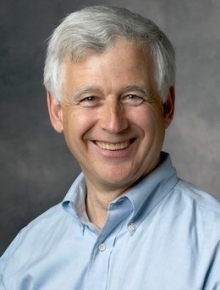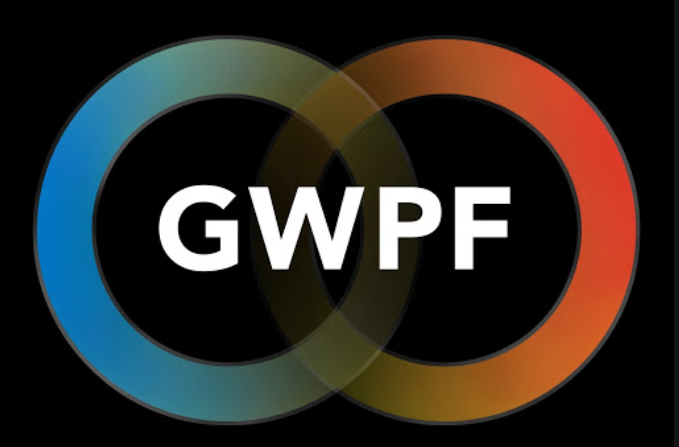David R. Henderson
Credentials
- Ph.D., Economics, University of California (1976).1“David R. Henderson,” Hoover Institution. Archived December 30, 2017. Archive.is URL: https://archive.is/I8N26
- B.Sc., Mathematics, University of Winnipeg (1970).2“David R. Henderson,” Hoover Institution. Archived December 30, 2017. Archive.is URL: https://archive.is/I8N26
Background
David R. Henderson, not to be confused with his UK counterpart Patrick David Henderson, is a Senior Fellow with the Fraser Institute and research fellow at the Hoover Institution.3“David R. Henderson,” Hoover Institution. Archived December 30, 2017. Archive.is URL: https://archive.is/I8N26
According to his profile at the Fraser Institute, Henderson was born and raised in Canada. He earned his B.Sc. in mathematics from the University of Winnipeg before moving to the United States where he earned his Ph.D. in Economics from the University of California.4“David R. Henderson,” Fraser Institute. Archived December 30, 2017. Archive.is URL: https://archive.is/LQZ8r
From 1982 to 1984, Henderson served on President Reagan’s Council of Economic Advisers as a senior economist specializing in energy and health policy.5“David R. Henderson,” Fraser Institute. Archived December 30, 2017. Archive.is URL: https://archive.is/LQZ8r
Henderson co-edits EconLong, the blog of the Library of Economics and Liberty along with Bryan Caplan. Alberto Mingardi, Scott Summer and guest blogger Emily Skarbek are also contributors.6“David Henderson: Archives,” Econolog. Archived December 30, 2017. Archive.is URL: https://archive.is/2uoVc
Henderson has consistenly questioned whether climate change is something to worry about, suggesting there are bigger risks to our society. He is an opponent of the carbon tax, and is against Corporate Average Fuel Economy (CAFE) standards.7David R. Henderson and John H. Cochrane. “Climate Change Isn’t the End of the World,” The Wall Street journal, July 30, 2017. Archive.is URL: https://archive.is/AVZLb 8David R. Henderson. “The Economics of Fuel Economy Standards” (PDF), Regulation Vol. 9 No. 106 (January/February 1985). 9“A carbon tax is not a ‘price’,” Fraser Forum, August 4, 2016. Archived December 30, 2017. Archive.is URL: https://archive.is/dDXOy
Stance on Climate Change
July 30, 2017
Henderson is co-author, with John H. Cochrane, of a Wall Street Journal article titled “Climate Change Isn’t the End of the World”:10David R. Henderson and John H. Cochrane. “Climate Change Isn’t the End of the World,” The Wall Street journal, July 30, 2017. Archive.is URL: https://archive.is/AVZLb
“Global warming is not the only risk our society faces. Even if science tells us that climate change is real and man-made, it does not tell us, as President Obama asserted, that climate change is the greatest threat to humanity. Really? Greater than nuclear explosions, a world war, global pandemics, crop failures and civil chaos?”
“No. Healthy societies do not fall apart over slow, widely predicted, relatively small economic adjustments of the sort painted by climate analysis. Societies do fall apart from war, disease or chaos. Climate policy must compete with other long-term threats for always-scarce resources.
[…] “Global warming is not even the obvious top environmental threat. Dirty water, dirty air and insect-borne diseases are a far greater problem today for most people world-wide. […]”11David R. Henderson and John H. Cochrane. “Climate Change Isn’t the End of the World,” The Wall Street journal, July 30, 2017. Archive.is URL: https://archive.is/AVZLb
Key Quotes
December 11, 2016
Writing at the EconLong blog, Henderson notes that while he’s “not been a fan of Donald Trump,” he was “ pleasantly surprised by many of his picks for cabinet positions.” For example, he said it’s a “good sign” that Scott Pruitt is a climate change denier:12David Henderson. “Trump’s Pick versus Reagan’s,” Econlog, December 11, 2016. Archived December 30, 2017. Archive.is URL: https://archive.is/LTxUI
“The EPA is out of control. In a forthcoming review in Regulation, I lay out the problem with its push for higher fuel economy in cars. But it’s out of control in other ways too. Pruitt will likely rein in, and even reverse, some of its most extreme excesses. One good sign: he is a global warming skeptic. […]”13David Henderson. “Trump’s Pick versus Reagan’s,” Econlog, December 11, 2016. Archived December 30, 2017. Archive.is URL: https://archive.is/LTxUI
August 4, 2016
Writing at the Fraser Institute’s blog, Henderson opposes carbon taxes for Canada:14“A carbon tax is not a ‘price’,” Fraser Forum, August 4, 2016. Archived December 30, 2017. Archive.is URL: https://archive.is/dDXOy
“If a carbon tax is implemented, it will likely be on top of the extensive regulation Canadians now contend with. Who’s offering to end regulation on carbon usage? Who’s offering to legalize certain kinds of incandescent light bulbs? Who’s offering to end the government’s mandates on energy efficiency in cars, trucks, washers, driers, refrigerators, air conditioners and other appliances? Who’s offering to get rid of expensive, market-distorting subsidies to solar and wind power? Anyone? Anyone? Bueller?”15“A carbon tax is not a ‘price’,” Fraser Forum, August 4, 2016. Archived December 30, 2017. Archive.is URL: https://archive.is/dDXOy
2015
Henderson reviewed Alex Epstein‘s The Moral Case for Fossil Fuels at the Cato Institute’s Regulation journal:16“Ethics and Energy reviewed by David R. Henderson” (PDF), Regulation Vol. 38, No. 2 (Summer 2015).
“Alex Epstein’s new book, The Moral Case for Fossil Fuels, needed to be written. He makes a powerful, practical case for using more, not less, fossil fuel, and his practical case is also his moral case. Thus the book’s title.”17“Ethics and Energy reviewed by David R. Henderson” (PDF), Regulation Vol. 38, No. 2 (Summer 2015).
Henderson said one chapter “almost gave me chills”:18“Ethics and Energy reviewed by David R. Henderson” (PDF), Regulation Vol. 38, No. 2 (Summer 2015).
”[…] I’ll close on a positive note. Epstein’s last chapter is his best and should have been his first chapter. In it, he tells how he paid famous environmentalist Bill McKibben $10,000 to debate him. That alone impressed me. Epstein tells the story in such a dramatic way that it almost gave me chills. I recommend reading it first; you will likely then be motivated to read the rest of the book.”19“Ethics and Energy reviewed by David R. Henderson” (PDF), Regulation Vol. 38, No. 2 (Summer 2015).
2010
In a review for the Cato Institute, Henderson criticizes a book suggesting benefits in investing in clean energy:20“’Clean’ Energy and Disguised Costs: Reviewed by David R. Henderson” (PDF), Regulation vol. 33 No. 209 (Summer 2010).
“Even economists who accept these views — that global warming is happening, that it is harmful, and that we should shift from lower-cost to higher-cost fuels to reduce this harm — will admit that shifting from lower-cost carbon-based fuels to higher cost alternative fuels will cost more. That is what moving from lower-cost to higher cost means,” Henderson wrote.
“[The authors’] argument is basically that an uncounted benefit of clean energy is the reduction of the harm generated by burning carbon-intensive fuels. This argument is correct, assuming that their premise is correct: if burning carbon-intensive fuels hurts the environment, then it is true that moving to ‘clean’ energy could create a net improvement in wellbeing. But that argument is beside the point […]”21“’Clean’ Energy and Disguised Costs: Reviewed by David R. Henderson” (PDF), Regulation vol. 33 No. 209 (Summer 2010).
Key Deeds
April 4, 2017
Writing at the Hoover Institution, Henderson and his co-author Charles L. Hooper questioned the validity of climate models, saying they have been dealt a “devastating blow” due to the factors of measurement error, the sun, and “cloud errors.”22David R. Henderson and Charles L. Hooper. “Flawed Climate Models,” Hoover Institution, April 4, 2017. Archived December 30, 2017. Archive.is URL: https://archive.is/lcMbu
Under “other uncertainties,” the authors wrote: “The glacial record shows geological periods with rising CO2 and global cooling and periods with low levels of atmospheric CO2 and global warming. Indeed, according to a 2001 article in Climate Research by astrophysicist and geoscientist Willie Soon and his colleagues, ‘atmospheric CO2 tends to follow rather than lead temperature and biosphere changes.’”23David R. Henderson and Charles L. Hooper. “Flawed Climate Models,” Hoover Institution, April 4, 2017. Archived December 30, 2017. Archive.is URL: https://archive.is/lcMbu
Henderson does not note that Willie Soon was responsible for another Climate Research paper that resulted in three of the journal’s editors resigning in protest, declaring the work seriously flawed.24“Storm Brews Over Global Warming,” Chronicle of Higher Education, September 5, 2003. Retrieved from www.cfa.harvard.edu.
Hooper and Henderson published a nearly identical article in the winter 2016/2017 issue of the Cato Institute journal, Regulation, titled “A Fatal Flaw with Climate Models.”25Charles L. Hooper and David R. Henderson. “A Fatal Flaw with Climate Models” (PDF), Regulation Vol. 39, No.4 (Winter 2016-2017).
October 27, 2014
Henderson is featured in a PragerU video suggesting an abolishment of the minimum wage. “While Congress discusses a minimum wage hike, economist David Henderson shows that any minimum wage makes it harder for unemployed people (particularly young people) to find work, and forces business owners to cut the hours of lower-skilled employees,” the video description reads.26“What’s the Right Minimum Wage?” PragerU, October 27, 2014. Archived .mp4 on file at DeSmog.
According to their website, PragerU’s mission is to “spread what we call ‘Americanism’ through the power of the Internet. Our five-minute videos are conservative sound bites that clarify profoundly significant and uniquely American concepts for more than 100 million people each year.” They focus on “Judeo-Christian” values including “freedom of speech, a free press, free markets and a strong military to protect and project those values.”27“What We Do,” PragerU.com. Archived May 31, 2016.
According to Conservative Transparency, PragerU has received $215,000 from the conservative Lynde and Harry Bradley Foundation and has also been funded by the billionaire brothers Dan Wilks and Farris Wilks, who made their money in the fracking industry.28“Prager U,” Conservative Transparency. Search Performed May 31, 2016.
September 30, 2010
After climate change denier Matt Ridley published his book, The Rational Optimist: How Prosperity Evolves, even some at the libertarian Cato Institute had criticism of the work. As noted by Cato’s own David Boaz, Henderson was not one of them.29David Boaz. “Three Views of Matt Ridley,” Cato Institute, September 30, 2010. Archived December 20, 2017. Archive.is URL: https://archive.is/WVgCv
“Henderson enthusiastically endorses the style and substance of Ridley’s book, though without identifying the weaknesses highlighted in the former review,” Boaz wrote at Cato.30David Boaz. “Three Views of Matt Ridley,” Cato Institute, September 30, 2010. Archived December 20, 2017. Archive.is URL: https://archive.is/WVgCv
Henderson published his original view in the Fall 2010 edition of Regulation, where he also points to Indur M. Goklany and the late Julian Simon as “the strongest voices for reason and optimism in a congenitally pessimistic world.”31“Reality-Based Optimism: Reviewed by David R. Henderson” (PDF), Regulation Vol. 33, No. 3-9 (Fall 2010).
“Why read Ridley if you have already read and absorbed Simon and Goklany?” Henderson asks. ” First, Ridley is an incredible writer who keeps you turning the page to find out what happens next.”32“Reality-Based Optimism: Reviewed by David R. Henderson” (PDF), Regulation Vol. 33, No. 3-9 (Fall 2010).
“His calculations at key points in the argument show just how ‘ungreen’ some supposedly environmental policies are, particularly organic farming and renewable energy,” Henderson added.33“Reality-Based Optimism: Reviewed by David R. Henderson” (PDF), Regulation Vol. 33, No. 3-9 (Fall 2010).
Jan/Feb 1985
Henderson wrote an article in the Jan/Feb 1985 issue of the Cato Institute’s Regulation where he opposed Corporate Average Fuel Economy (CAFE) standards.34David R. Henderson. “The Economics of Fuel Economy Standards” (PDF), Regulation Vol. 9 No. 106 (January/February 1985).
“With the decontrol of gas prices, consumers already pay full price for their gasoline and therefore already have appropriate incentives to conserve. CAFE only hurts consumers by preventing them from buying the kinds of cars they really want,” Henderson wrote in the article titled “The Economics of Fuel Economy Standards.”35David R. Henderson. “The Economics of Fuel Economy Standards” (PDF), Regulation Vol. 9 No. 106 (January/February 1985).
Affiliations
- Hoover Institution — Research Fellow (1990 – Present).36“David R. Henderson,” Hoover Institution. Archived December 30, 2017. Archive.is URL: https://archive.is/I8N26
- Fraser Institute — Senior Fellow.37“David R. Henderson,” Fraser Institute. Archived December 30, 2017. Archive.is URL: https://archive.is/LQZ8r
- President Ronald Reagan — Senior economist on Council of Economic Advisers (1982 –1984).38“David R. Henderson,” Fraser Institute. Archived December 30, 2017. Archive.is URL: https://archive.is/LQZ8r
- Naval Postgraduate School — Associate Professor of Economics (1984 – Present).39“David Henderson,” LinkedIn. Accessed December 29, 2017. Archived .pdf on file at DeSmog.
- Council of Economic Advisers — Senior Economist (1982 – 1984).40“David Henderson,” LinkedIn. Accessed December 29, 2017. Archived .pdf on file at DeSmog.
- Library of Economics and Liberty — Features editor. Henderson is also a co-editor of the library’s blog, Econolog.41“About the Library of Economics and Liberty,” Library of Economics and Liberty. Archived December 30, 2017. Archive.is URL: https://archive.is/JZsjY 42“David Henderson: Archives,” Econolog. Archived December 30, 2017. Archive.is URL: https://archive.is/2uoVc
Social Media
Publications
According to his profile at the Fraser Institute, Henderson regularly contributes to The Wall Street Journal and formerly to Fortune. He has also written for the Journal of Policy Analysis and Management, Journal of Monetary Economics, Cato Journal, Regulation, Contemporary Policy Issues, and Energy Journal. He is also the editor of The Concise Encyclopedia of Economics.43“David R. Henderson,” Fraser Institute. Archived December 30, 2017. Archive.is URL: https://archive.is/LQZ8r
Regulation
Henderson has been a regular contributor the Cato Institute publication, Regulation. He is also the author of several Cato “briefing papers” and “policy reports.” Sample Regulation articles below.
Fall 2017
- The Color of Law reviewed by David R. Henderson
Spring 2017
- A More Optimistic View by David R. Henderson
- Tyler Cowen, Semi-Persuasive Futurist reviewed by David R. Henderson
- The Restless Judge reviewed by David R. Henderson
Summer 2016
- Saving Capitalism from Robert Reich reviewed by David R. Henderson
- Great Data, Disappointing Economics reviewed by David R. Henderson
Winter 2015/2016
- The Essence of Hayek reviewed by David R. Henderson
- Climate Shock reviewed by David R. Henderson
Summer 2015
- Health Care Incentives Matter reviewed by David R. Henderson
- Ethics and Energy reviewed by David R. Henderson
Spring 2015
- You Had Me at Page One reviewed by David R. Henderson
- Adam Smith’s Guide to Living reviewed by David R. Henderson
Winter 2014-2015
- A Feel for Economics: Murray L. Weidenbaum, 1927–2014 by David R. Henerson
Summer 2014
- Why Isn’t Peter Schuck a Libertarian? reviewed by David R. Henderson
Spring 2014
- The Moral Vision of a Blind Economist: Walter Oi, 1929–2013 by David R. Henderson.
- The Powerful Case for Immigration reviewed by David R. Henderson
Winter 2013–2014
- Perverse Incentives in the Financial World reviewed by David R. Henderson.
Summer 2013
- Uncertainty Can Go Both Ways by David R. Henderson.
- Behave! reviewed by David R. Henderson.
- Better Mixed Economy reviewed by David R. Henderson.
Spring 2013
- Book Review: The Redistribution Recession reviewed by David R. Henderson
- Book Review: Why Nations Fail reviewed by David R. Henderson
Winter 2012–2013
- Book Review: Red Plenty reviewed by David R. Henderson
- Book Review: Rich-Hunt reviewed by David R. Henderson
Fall 2012
- Book Review: Priceless reviewed by David R. Henderson
- Book Review: The Armchair Economist reviewed by David R. Henderson
Spring 2012
- A Tough-Minded and Humane Man by David R. Henderson
- Left Turn: How Liberal Media Bias Distorts the American Mind reviewed by David R. Henderson
Winter 2011–2012
- Book Review: The Darwin Economy: Liberty, Competition, and the Common Good reviewed by David R. Henderson
- Book Review: First Thing We Do, Let’s Deregulate All the Lawyers reviewed by David R. Henderson
Fall 2011
- Book Review: All the Devils Are Here: The Hidden History of the Financial Crisis reviewed by David R. Henderson
- Book Review: Peddling Protectionism: Smoot-Hawley and the Great Depression reviewed by David R. Henderson
Summer 2011
- Book Review: The Great Stagnation: How America Ate All the Low-Hanging Fruit of Modern History, Got Sick, and Will (Eventually) Feel Better reviewed by David R. Henderson
Winter 2010–2011
- Book Review: Fault Lines, and Jimmy Stewart Is Dead reviewed by David R. Henderson
Summer 2010
- Book Review: Leviathan’s Drug Problem and Overdose reviewed by David R. Henderson
- Book Review: The Economic Benefits of Investing in Clean Energy reviewed by David R. Henderson
- Book Review: Intellectuals and Society reviewed by David R. Henderson
Winter 2009–2010
- Book Review: Taming the Beloved Beast reviewed by David R. Henderson
- Book Review: Offshoring of American Jobs reviewed by David R. Henderson
Fall 2009
- Book Review: The Invisible Hook reviewed by David R. Henderson
- Book Review: The Microsoft Case reviewed by David R. Henderson
Summer 2009
- Book Review: The Case For Big Government reviewed by David R. Henderson
Spring 2009
- Book Review: The Road to Serfdom reviewed by David R. Henderson
Fall 2008
- Book Review: Why Popcorn Costs So Much at the Movies reviewed by David R. Henderson
- Book Review: The Best Book on the Market reviewed by David R. Henderson
Summer 2008
- Book Review: Code Red: An Economist Explains How to Revive the Healthcare System Without Destroying It reviewed by David R. Henderson
- Book Review: Nudge: Improving Decisions about Health, Wealth, and Happiness reviewed by David R. Henderson
Winter 2008–2009
- Book Review: The Price of Everything reviewed by David R. Henderson
January/February 1985
- The Economics of Fuel Economy Standards by David R. Henderson
Other Resources
- “David R. Henderson,” Wikipedia.
Resources
- 1“David R. Henderson,” Hoover Institution. Archived December 30, 2017. Archive.is URL: https://archive.is/I8N26
- 2“David R. Henderson,” Hoover Institution. Archived December 30, 2017. Archive.is URL: https://archive.is/I8N26
- 3“David R. Henderson,” Hoover Institution. Archived December 30, 2017. Archive.is URL: https://archive.is/I8N26
- 4“David R. Henderson,” Fraser Institute. Archived December 30, 2017. Archive.is URL: https://archive.is/LQZ8r
- 5“David R. Henderson,” Fraser Institute. Archived December 30, 2017. Archive.is URL: https://archive.is/LQZ8r
- 6“David Henderson: Archives,” Econolog. Archived December 30, 2017. Archive.is URL: https://archive.is/2uoVc
- 7David R. Henderson and John H. Cochrane. “Climate Change Isn’t the End of the World,” The Wall Street journal, July 30, 2017. Archive.is URL: https://archive.is/AVZLb
- 8David R. Henderson. “The Economics of Fuel Economy Standards” (PDF), Regulation Vol. 9 No. 106 (January/February 1985).
- 9“A carbon tax is not a ‘price’,” Fraser Forum, August 4, 2016. Archived December 30, 2017. Archive.is URL: https://archive.is/dDXOy
- 10David R. Henderson and John H. Cochrane. “Climate Change Isn’t the End of the World,” The Wall Street journal, July 30, 2017. Archive.is URL: https://archive.is/AVZLb
- 11David R. Henderson and John H. Cochrane. “Climate Change Isn’t the End of the World,” The Wall Street journal, July 30, 2017. Archive.is URL: https://archive.is/AVZLb
- 12David Henderson. “Trump’s Pick versus Reagan’s,” Econlog, December 11, 2016. Archived December 30, 2017. Archive.is URL: https://archive.is/LTxUI
- 13David Henderson. “Trump’s Pick versus Reagan’s,” Econlog, December 11, 2016. Archived December 30, 2017. Archive.is URL: https://archive.is/LTxUI
- 14“A carbon tax is not a ‘price’,” Fraser Forum, August 4, 2016. Archived December 30, 2017. Archive.is URL: https://archive.is/dDXOy
- 15“A carbon tax is not a ‘price’,” Fraser Forum, August 4, 2016. Archived December 30, 2017. Archive.is URL: https://archive.is/dDXOy
- 16“Ethics and Energy reviewed by David R. Henderson” (PDF), Regulation Vol. 38, No. 2 (Summer 2015).
- 17“Ethics and Energy reviewed by David R. Henderson” (PDF), Regulation Vol. 38, No. 2 (Summer 2015).
- 18“Ethics and Energy reviewed by David R. Henderson” (PDF), Regulation Vol. 38, No. 2 (Summer 2015).
- 19“Ethics and Energy reviewed by David R. Henderson” (PDF), Regulation Vol. 38, No. 2 (Summer 2015).
- 20“’Clean’ Energy and Disguised Costs: Reviewed by David R. Henderson” (PDF), Regulation vol. 33 No. 209 (Summer 2010).
- 21“’Clean’ Energy and Disguised Costs: Reviewed by David R. Henderson” (PDF), Regulation vol. 33 No. 209 (Summer 2010).
- 22David R. Henderson and Charles L. Hooper. “Flawed Climate Models,” Hoover Institution, April 4, 2017. Archived December 30, 2017. Archive.is URL: https://archive.is/lcMbu
- 23David R. Henderson and Charles L. Hooper. “Flawed Climate Models,” Hoover Institution, April 4, 2017. Archived December 30, 2017. Archive.is URL: https://archive.is/lcMbu
- 24“Storm Brews Over Global Warming,” Chronicle of Higher Education, September 5, 2003. Retrieved from www.cfa.harvard.edu.
- 25Charles L. Hooper and David R. Henderson. “A Fatal Flaw with Climate Models” (PDF), Regulation Vol. 39, No.4 (Winter 2016-2017).
- 26“What’s the Right Minimum Wage?” PragerU, October 27, 2014. Archived .mp4 on file at DeSmog.
- 27“What We Do,” PragerU.com. Archived May 31, 2016.
- 28“Prager U,” Conservative Transparency. Search Performed May 31, 2016.
- 29David Boaz. “Three Views of Matt Ridley,” Cato Institute, September 30, 2010. Archived December 20, 2017. Archive.is URL: https://archive.is/WVgCv
- 30David Boaz. “Three Views of Matt Ridley,” Cato Institute, September 30, 2010. Archived December 20, 2017. Archive.is URL: https://archive.is/WVgCv
- 31“Reality-Based Optimism: Reviewed by David R. Henderson” (PDF), Regulation Vol. 33, No. 3-9 (Fall 2010).
- 32“Reality-Based Optimism: Reviewed by David R. Henderson” (PDF), Regulation Vol. 33, No. 3-9 (Fall 2010).
- 33“Reality-Based Optimism: Reviewed by David R. Henderson” (PDF), Regulation Vol. 33, No. 3-9 (Fall 2010).
- 34David R. Henderson. “The Economics of Fuel Economy Standards” (PDF), Regulation Vol. 9 No. 106 (January/February 1985).
- 35David R. Henderson. “The Economics of Fuel Economy Standards” (PDF), Regulation Vol. 9 No. 106 (January/February 1985).
- 36“David R. Henderson,” Hoover Institution. Archived December 30, 2017. Archive.is URL: https://archive.is/I8N26
- 37“David R. Henderson,” Fraser Institute. Archived December 30, 2017. Archive.is URL: https://archive.is/LQZ8r
- 38“David R. Henderson,” Fraser Institute. Archived December 30, 2017. Archive.is URL: https://archive.is/LQZ8r
- 39“David Henderson,” LinkedIn. Accessed December 29, 2017. Archived .pdf on file at DeSmog.
- 40“David Henderson,” LinkedIn. Accessed December 29, 2017. Archived .pdf on file at DeSmog.
- 41“About the Library of Economics and Liberty,” Library of Economics and Liberty. Archived December 30, 2017. Archive.is URL: https://archive.is/JZsjY
- 42“David Henderson: Archives,” Econolog. Archived December 30, 2017. Archive.is URL: https://archive.is/2uoVc
- 43“David R. Henderson,” Fraser Institute. Archived December 30, 2017. Archive.is URL: https://archive.is/LQZ8r






